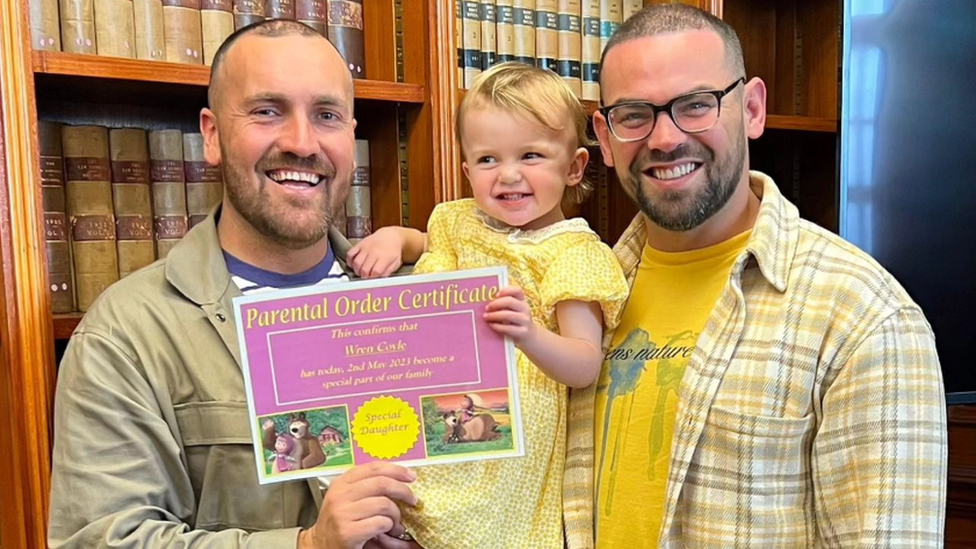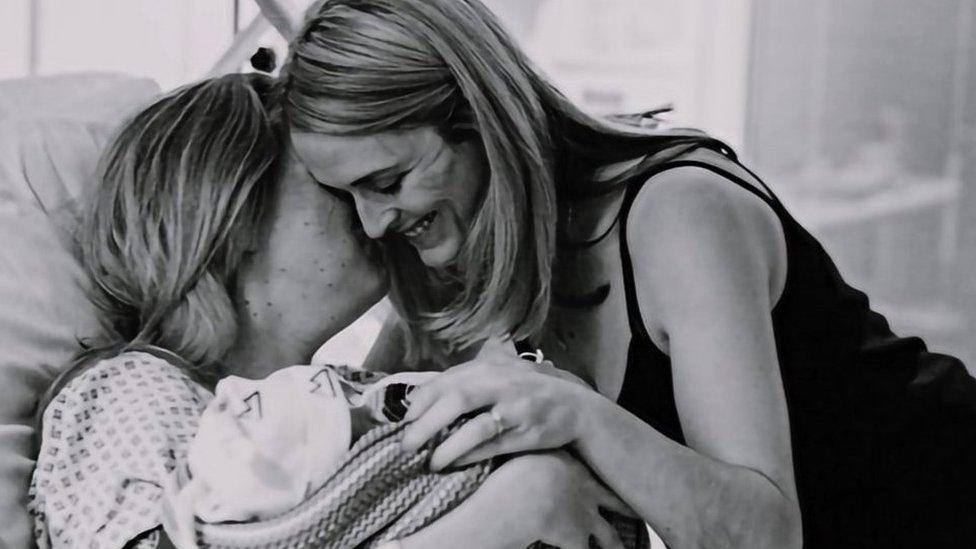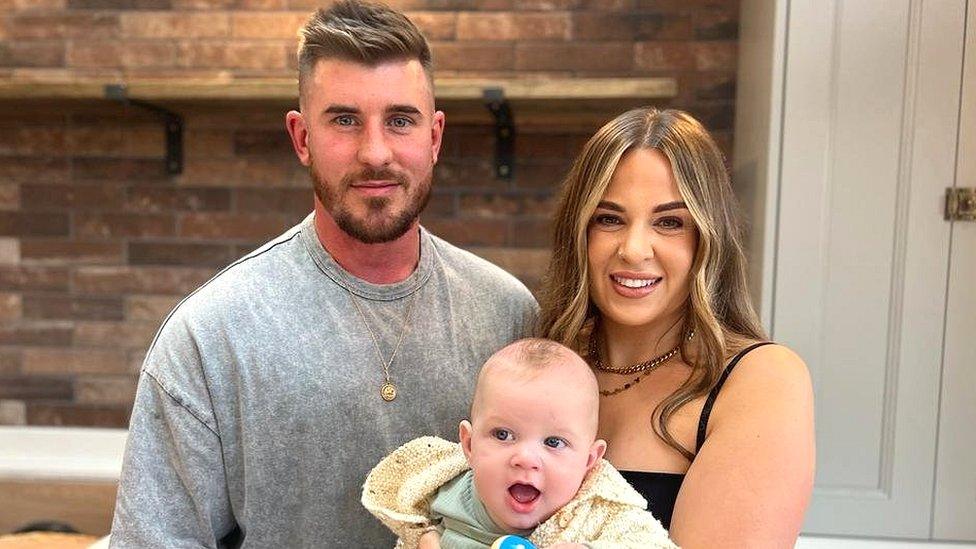Surrogacy: Derry dads call for simpler laws in the UK
- Published

The couple were granted a parental order earlier this month.
A Londonderry couple whose daughter was born via a surrogate have said UK surrogacy laws need to be simplified.
Patrick and Jon Coyle's daughter, Wren, was born in 2021. She was conceived by IVF and carried by Patrick's sister, Charley.
But it has taken a further 18 months for the couple to be granted a parental order making them Wren's legal parents.
"It was a lot of back and forth so that was a long time in the making," Jon told BBC Radio Foyle.
Under current UK law, the surrogate is the child's legal parent at birth.
Legal parenthood can only be transferred by parental order or adoption, external after the child is born.
That means, in most cases, those raising the baby have no legally recognised relationship with the child until a parental order is granted.
'Courts didn't know'
Patrick and Jon's parental order was confirmed earlier this week.
"For gay couples, you can't put two men on a birth certificate at present so you have to wait six weeks and a day before you can apply for the parental order," Patrick told BBC Radio Foyle's The North West Today programme.
He added: "And because our case was a wee bit more complicated, some of the courts didn't know what it was they had to get off us like documents and stuff.
"Some of the solicitors were unfamiliar with what they had to get as well."
The impact of the Covid-19 pandemic may also have lengthened the wait, the couple said.
The delay, Jon added, had implications on a practical level - it complicated applying for a passport for Wren and giving consent for medical procedures.
"They would only recognise one of us being on the birth certificate to give that consent on Wren's behalf".
The couple were fortunate, Jon said, because Patrick's sister was their surrogate and they "always had that access and contact to get the consent that we required".
"But it just undermined our roles then as two fathers when only one of us was recognised as Wren's daddy legally," he said.
Before Wren was born, the couple had experienced a miscarriage during their first attempt to have a baby via surrogacy.
They would like to see more support put in place for couples who may be in a similar position.
"I think that's a conversation that families and communities and local MLAs and MPs need to bring to the forefront, and discuss options on how to support families access these services," Jon said.
In Northern Ireland an application for a parental order is made through the Courts and Tribunals Service (NICTS).
A spokesperson for the Department for Justice (DoJ) told BBC News NI it is not for the NICTS to comment on individual cases or the decisions of the judiciary as they are independent.
They said it should be noted under the Children Order that the welfare of the child is paramount.
"Proceedings can be often be complex involving different professionals such as social workers as well as the families themselves," they added.
Related topics
- Published16 March 2023

- Published22 September 2021

- Published20 October 2022
